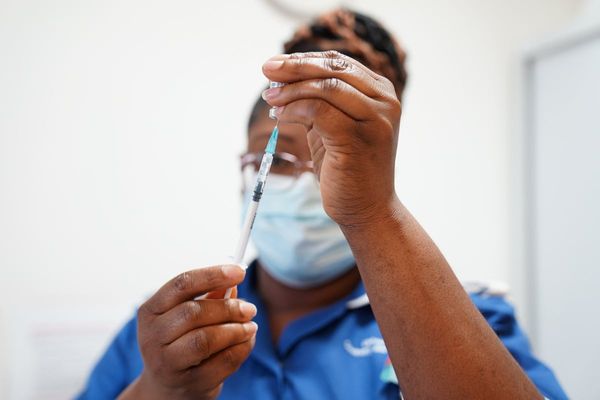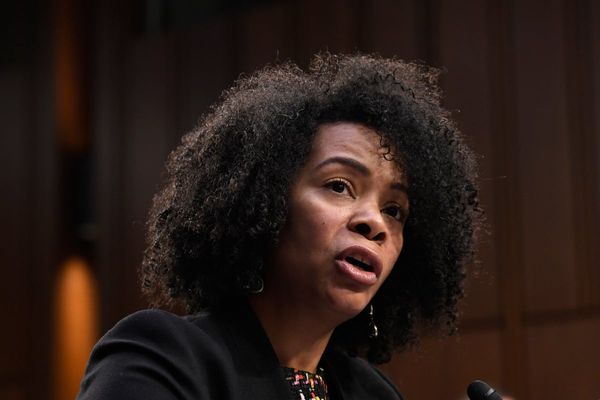
Kyrgyzstan is in the midst of a political crisis. Following parliamentary elections on Oct. 4 marred by vote buying and intimidation by pro-establishment political parties, President Sooronbai Jeenbekov was forced to resign, while his opponent from the Ata-Jurt (Fatherland) party, Sadyr Japarov—who was sprung from prison by his supporters days after the elections—declared himself the acting head of state. The weeks following the elections have plunged the country into cycles of violent protest.
While there’s hope that political life will return to normal after a rerun of the parliamentary elections scheduled for Dec. 20, many in the country are concerned that the most powerful political parties are affiliated with individuals with criminal and corrupt backgrounds. The criminal underworld has always played a role in supporting both government and opposition forces in Kyrgyzstan. Political leaders turn to the help of criminal actors to prevail in a competitive political landscape, and individuals with corrupt and criminal backgrounds often try to enter the formal political process to shield themselves from prosecution.
Omurbek Suvanaliev, the former deputy secretary of Kyrgyzstan’s Security Council, has publicly stated that criminal groups back the Birimdik (United) and Mekenim Kyrgyzstan (My Fatherland Kyrgyzstan) parties. In the run-up to the election, he stated that the notorious criminal kingpin Kamchy Kolbayev allegedly supported parties aligned with Jeenbekov, while Mekenim Kyrgyzstan is represented by the brother of the former customs chief Raimbek Matraimov, who is allegedly involved in large-scale corruption and money laundering schemes according to journalistic investigations. Both Kolbayev and Matraimov enjoy support in their hometowns and villages thanks to the protections they offer to local entrepreneurs.
Kolbayev raised his public profile during the pandemic this summer. He distributed food and medical supplies in his native Issyk-Kul province. Local doctors expressed personal gratitude to Kolbayev for the help when the public health care system quickly ran out of resources. Kolbayev’s criminal network has also been on the U.S. State Department’s wanted list since 2014 and on the U.S. Treasury Narcotics Kingpin list since 2011 for its involvement in “drug trafficking, arms trafficking, human trafficking, extortion, and other crimes.” On Oct. 14, the U.S. Embassy in Bishkek expressed concern about the involvement of organized crime and corruption in Kyrgyzstan’s political process. The statement called on both citizens and political leaders to “continue to fight against the influence of organized crime and corruption in politics.”
The latest protests by opposition parties were intended as a rebuke to individuals affiliated with criminal groups and corruption gaining a majority of seats in the parliament.
Months before the elections, a coalition of three media outlets—Kloop.kg, Radio Azattyk, and the Organized Crime and Corruption Reporting Project—produced a series of investigative reports revealing Matraimov’s funneling abroad of $700 million in cash as part of an elaborate money laundering effort. The revelations began late last year and prompted protests in Bishkek by the urban middle class demanding that Jeenbekov investigate Matraimov and reduce the influence of corruption in national politics. Ignoring journalistic accounts, Jeenbekov famously said he still needed to see facts to be able to hold Matraimov accountable.
Kyrgyzstan has seen forceful regime changes twice before—in March 2005 and in April 2010. Each time, formerly fugitive crime bosses found new opportunities to gain impunity by showing their opposition or support for incumbent politicians. In April 2006, Rysbek Akmatbayev, suspected in a triple homicide but acquitted by court, walked in central Bishkek to show he wasn’t afraid to criticize then-President Kurmanbek Bakiyev. He ran in parliamentary elections and won overwhelming support in his native Balykchy town. A month later, he was shot dead near Bishkek.
Akmatbayev’s father suspects his son was killed by security authorities, but there has still been no formal investigation. Today, Kolbayev also faces challenges from other rising criminal kingpins who may step into the center of political life under the new leadership. If Kolbayev was indeed supportive of pro-establishment parties, his political patrons are now gone, and he will have to adjust.
During Bakiyev’s regime, from 2005 to 2010, politicians with criminal backgrounds were able to win seats in the parliament. After Bakiyev was ousted in 2010, interim President Roza Otunbayeva tried to prosecute up to 80 members of organized criminal groups across the country. Kolbayev was briefly arrested in 2012 by Kyrgyz authorities after being extradited by United Arab Emirates but was soon released. Both witnesses and victims withdrew their earlier testimonies, and although Kyrgyzstan’s Supreme Court sentenced him to three years in jail, he was still able to walk free.
Criminal groups in Kyrgyzstan have international connections as well. For over a decade, Kolbayev was the most influential crime boss with reported connections among criminal groups in Russia. According to former Interior Minister Murat Sutalinov, Kolbayev (known in Russia as Kolya-Kirghiz) was “crowned” as Kyrgyzstan’s only “thief-in-law,” a tradition in the criminal underworld dating back to the Soviet times. Another known criminal, Aziz Batukayev, an ethnic Chechen from Tokmok, also claimed thief-in-law status and was freed from jail in 2013 by former President Almazbek Atambayev’s administration for health reasons.
He was quickly extradited to Chechnya, reportedly thanks to mediation by Adam Delimkhanov, a member of the Russian Duma and a close ally of Chechen leader Ramzan Kadyrov. Batukayev has since appeared looking healthy and active in the Chechen capital, Grozny. Jeenbekov later prosecuted Atambayev and several others from his administration for charges that included the unlawful release of Batukayev.
The country’s decentralized political landscape—with many different factions competing for representation in the parliament—is one of the reasons organized criminal groups find opportunities to influence politics. To cross the 7 percent threshold to enter the parliament (previously 9 percent), political parties need to raise sufficient funds to launch effective campaigns. As one candidate from Mekenim Kyrgyzstan confessed, wealthy politicians are expected to pay $500,000 to $1 million to political party leaders to secure positions at the top of the party list. Few individuals in the country can afford such payouts and are likely to be involved in the shadow economy.
Kyrgyzstan is a transit country for heroin trafficked from Afghanistan to Russia and Europe. Drug trafficking has always been one of the major sources for criminal organizations there, especially in southern Kyrgyzstan. Imports and contraband from China are another source of enrichment.
To prevail in a competitive political landscape, Kyrgyz politicians often rely on the support of physically fit men to intimidate opponents with the threat of potential violence. For instance, the former mayor of Osh, Melis Myrzakhmetov, relied on a network of martial arts clubs. Japarov’s supporters—mostly young men—were bused to protest locations in Bishkek. With the latest round of regime change, criminal and corrupt networks are readapting to new political coalitions. Matraimov could now challenge Japarov or choose to support him. On Oct. 20, Matraimov was arrested by the State Committee for National Security, but it remains to be seen if he will indeed be prosecuted for corruption.
Across Central Asia, human rights and political activists are calling for the U.S. government to sanction corrupt individuals under the Global Magnitsky Act, which would allow it to freeze assets and limit travel in Western countries. In their book on international offshore vehicles, Dictators Without Borders, Alexander Cooley and John Heathershaw examine how elites across Central Asia benefit from opportunities to launder money to Western markets. To date, only Gulnara Karimova, the daughter of late Uzbek President Islam Karimov—who died while still in office in 2016—has been prosecuted and imprisoned. Expanding this list to individuals like Matraimov could potentially help Kyrgyz authorities repatriate his laundered funds back to Kyrgyzstan.
But the new leadership isn’t so encouraging. Acting President Japarov himself is a convicted kidnapper. In 2013, he was charged with taking hostage the head of Issyk-Kul province and sentenced to 11 and a half years in prison. Japarov denied his involvement and briefly fled to Cyprus to avoid prosecution. He was freed from jail days after the elections by his supporters, who used the political crisis to proclaim him their leader. Japarov declared that he would fight organized crime and corruption, including by prosecuting Matraimov. But his own controversial ascent to power undermines his image as an honest politician.
Kyrgyzstan’s weak judicial system is often used by incumbents to jail their political opponents instead of going after criminal networks. Thanks to the country’s free media landscape with award-winning investigative journalists, the public is able to learn about connections between criminal and political realms.
A new generation of political activists demanding clean politics and more efficient governance has emerged as a result of journalistic investigations. Some of them have formed new political parties, like Reforma, which demands more transparent governance, while others were recruited to join more seasoned opposition parties like Ata-Meken (Homeland) and Bir Bol (Be One). They see a fresh opportunity to prevail in elections in December and clean up politics from criminal and corrupt actors. Given the history of deep connections between politics, crime, and corruption in Kyrgyzstan, it will be an uphill battle.







